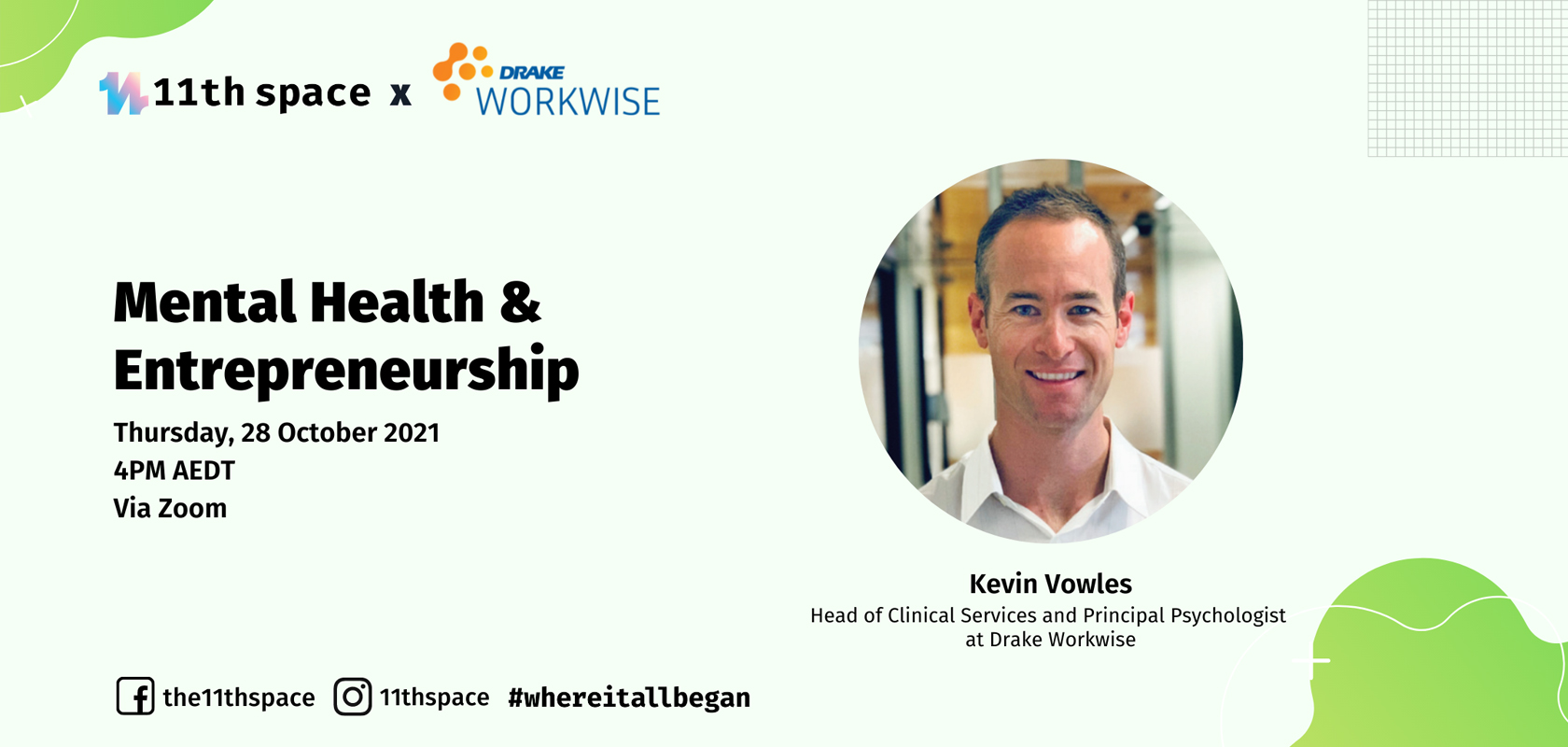

Entrepreneurship is almost always a rollercoaster journey, filled with ups and downs. One topic that hasn’t been largely talked about is the negative, stressful effects an entrepreneur can face while starting their own business.
For the 13th episode of 11th Talks, we partnered with Drake Workwise to shed light on the topic of mental health in entrepreneurship. Kevin Vowles, who serves as head psychologist of the organisation, shares his insights on how one can maintain good mental wellbeing in the tumultuous times largely caused by COVID-19.
Watch the full video recording or read the following article on some insights they shared with the participants.

What is wellbeing, and why is it important?
Wellbeing is more than just about functioning well and being happy. True wellbeing is about living in a way that is good for you and good for the people around you. Wellbeing does not mean that you never experience difficult situations, but being able to cope better with tough times.
Research shows that people who have good wellbeing are able to connect more socially, are more environmentally responsible, are more productive in their ambitions, and generally achieve more.
How do you improve your overall mental wellbeing?
- Connect
Stay in touch with friends and family and don’t isolate yourself. Find a like-minded group who can motivate you and where you can hold each other accountable for your daily goals in life. - Be active
Don’t neglect your health, take small steps to improve your physical wellbeing. After all, our physical and mental wellbeing are intertwined. Find a physical activity that you enjoy, like a sport, dance, or even a spinning class, and commit yourself to it. - Keep learning
Learn about anything that interests you, whether that’s yoga, entrepreneurship, or the ancient history of Feudal Japan. There are many resources available nowadays present in many channels, like podcasts, YouTube videos, that make it more accessible for you to keep growing. - Be aware
Take note of what’s going on around you, and live in the present. Think about what’s here and now, all the sights, smells, and sounds to remove stress and be calmer. In other words, be more mindful.
Mindfulness strategies you can do to improve your mental wellbeing:
- Choose one activity that you “automatically pilot”, and do it in a fully mindful way.
Oftentimes, when we do things in automatic pilot mode, where situations, thoughts, and feelings can often bring about old ways of thinking that are often unhelpful and may affect our mood.
Choose one activity that you routinely do in autopilot mode, like walking in the park or cooking, and do it in a fully mindful manner. Use all of your senses and take in all of the stimuli going on around you. By paying attention to these little things, you can fully live in the present moment.
2. Identify your values
Spend 5-10 minutes identifying values that are important to you, and use them to enhance your everyday activities. Using this approach lets one live a more structured, grounded life that is built on what one actually finds essential, it’s also important for the next point.
3. Choose the healthy option – mentally.
Most of us have the tendency to think pessimistically or assume the worst. This is not good for mental health, because we dread things that haven’t happened or aren’t going to happen. While it may be easier said than done, one must always remember to control the controllables, and let the uncontrollables go.
Little things we do in our everyday life can help with this. Connecting with friends and family, taking short breaks, and choosing information to consume can greatly boost healthy thinking.
